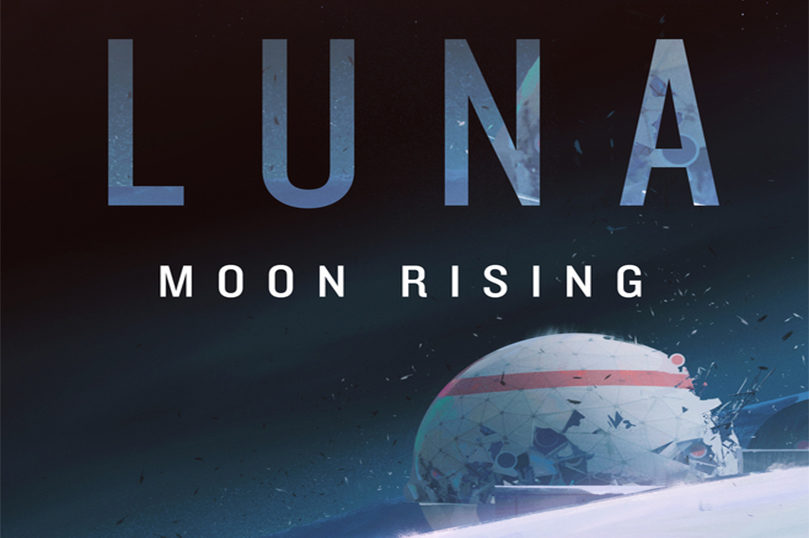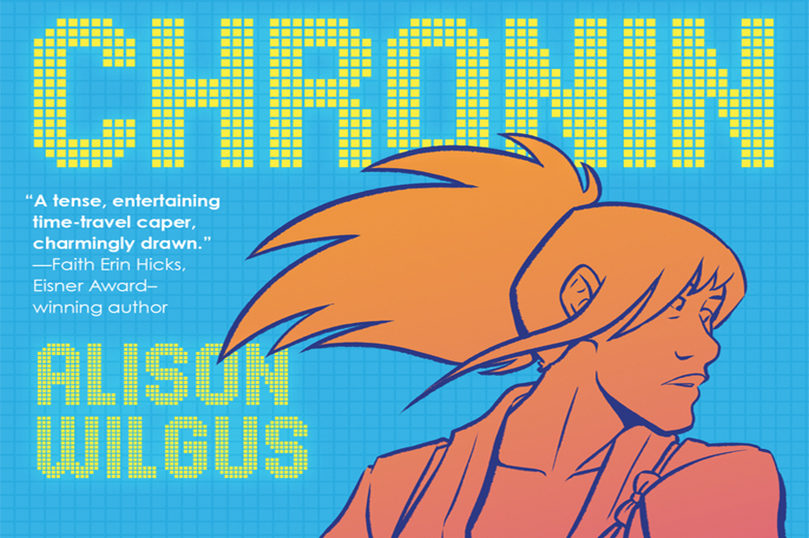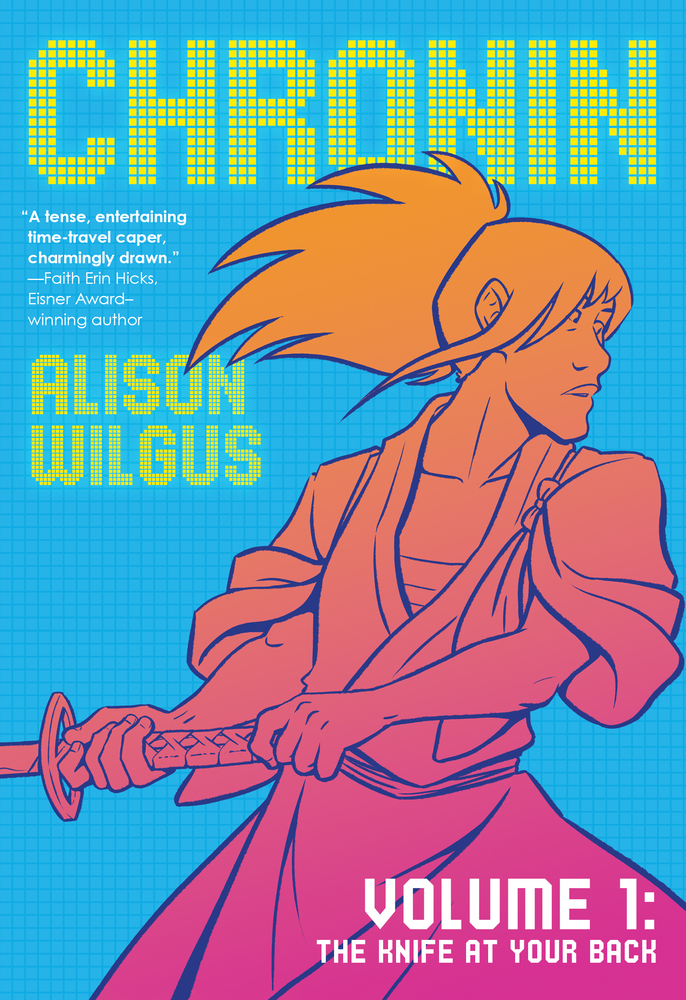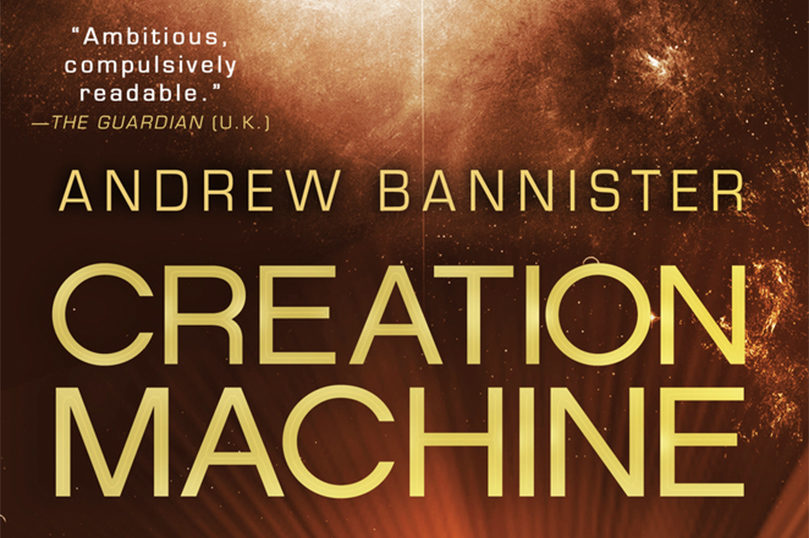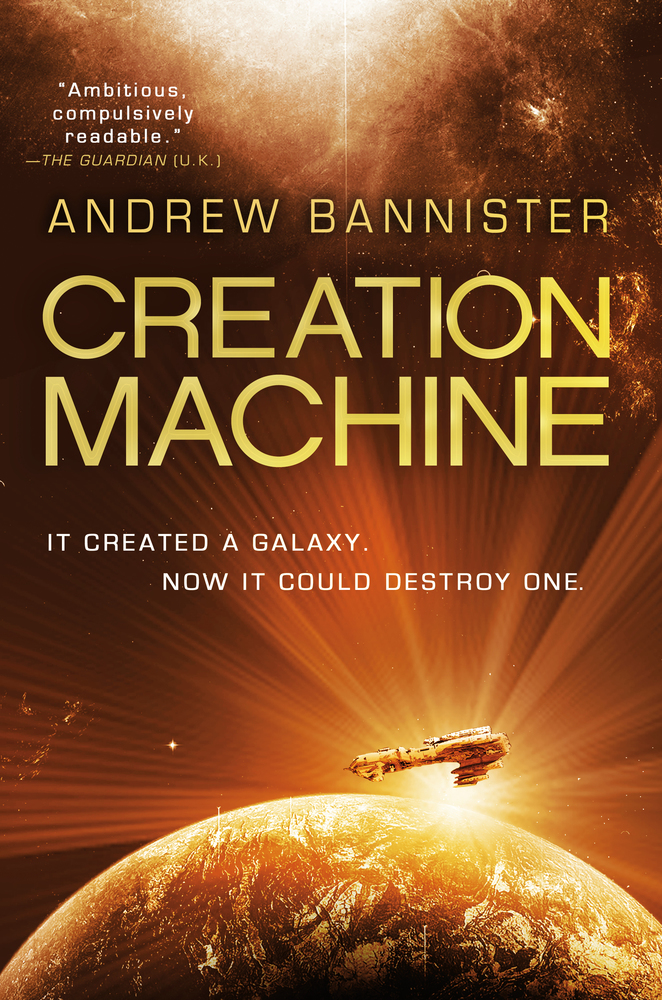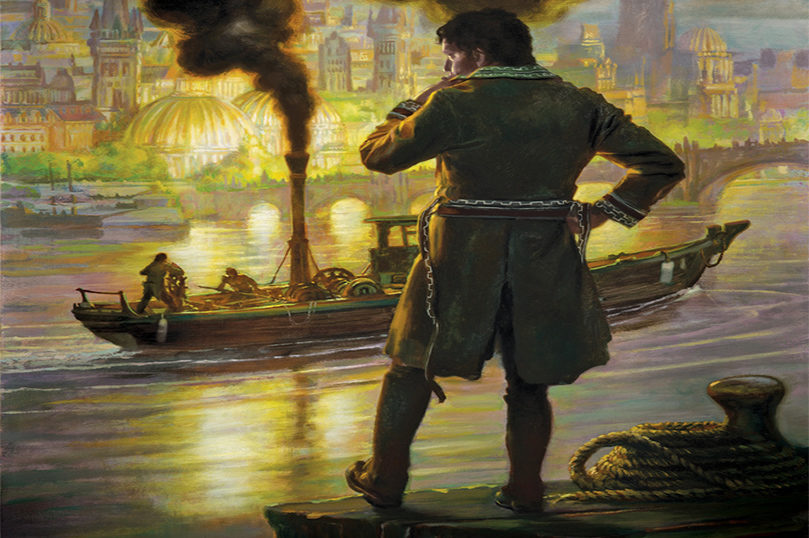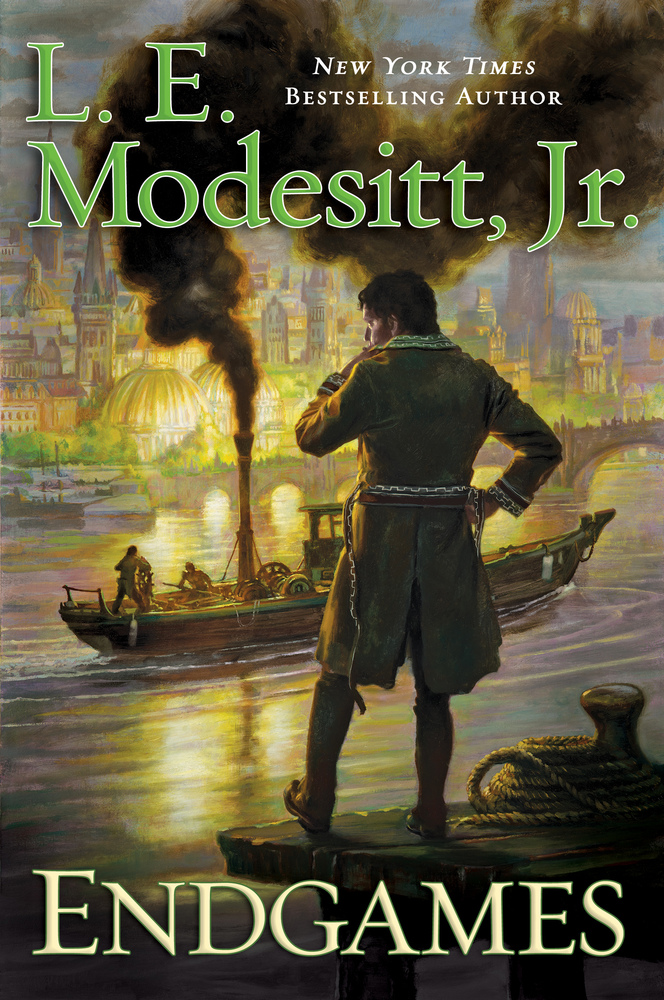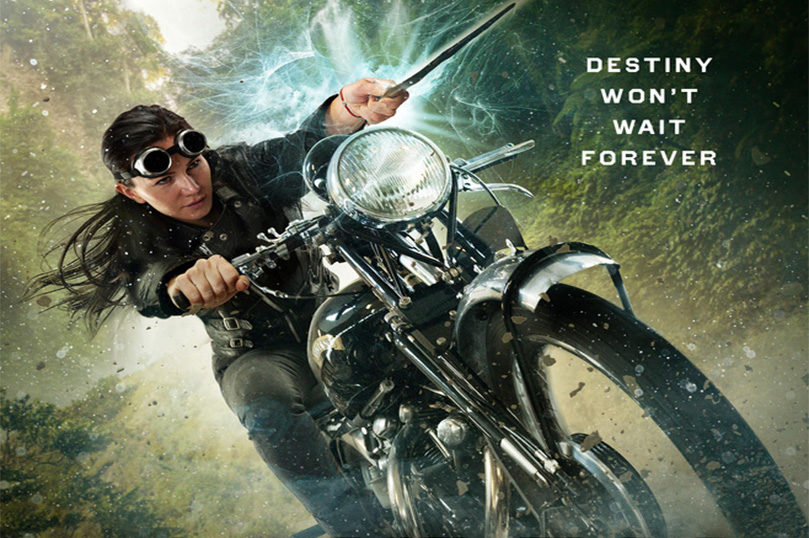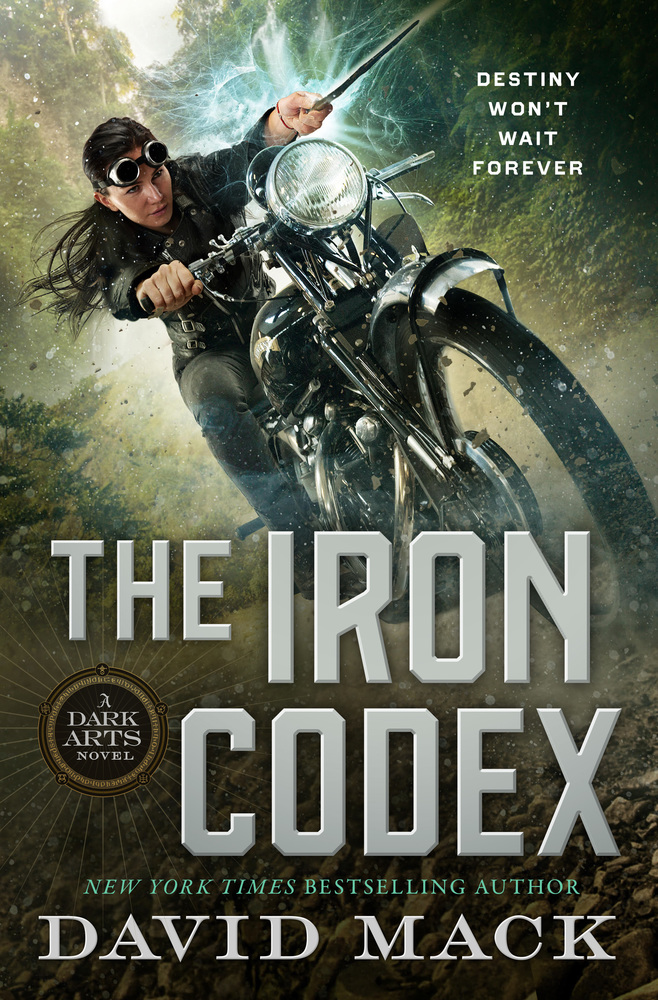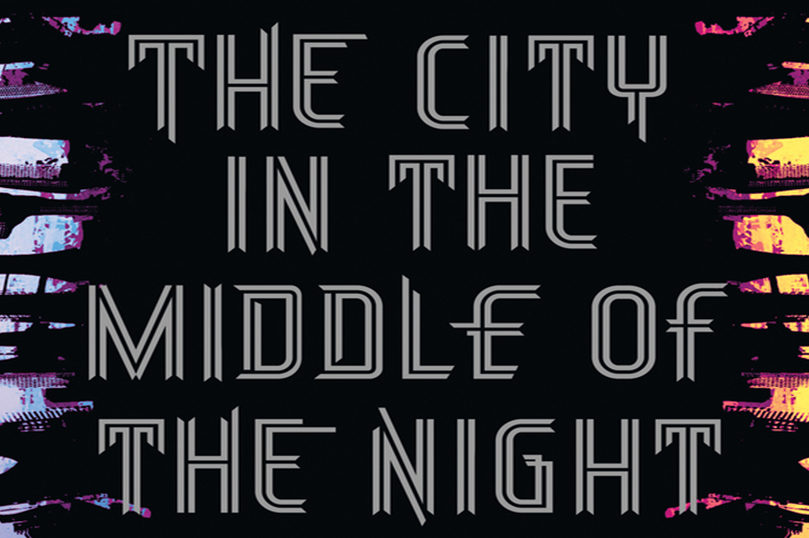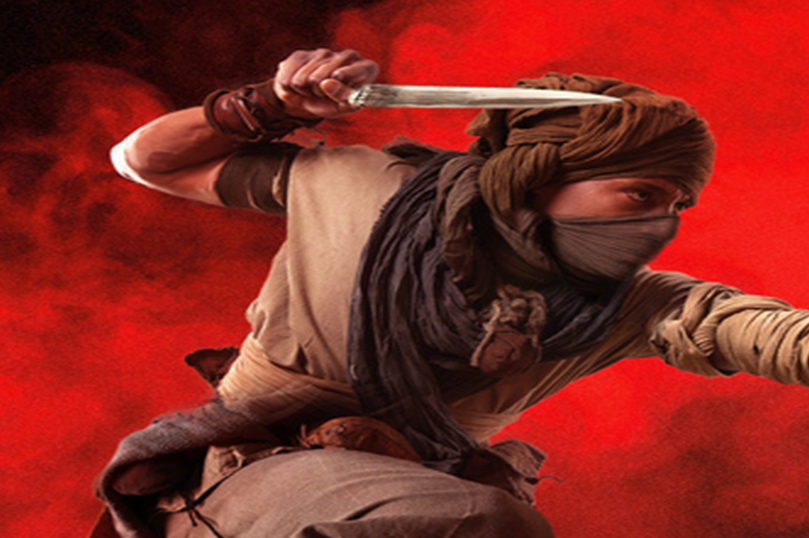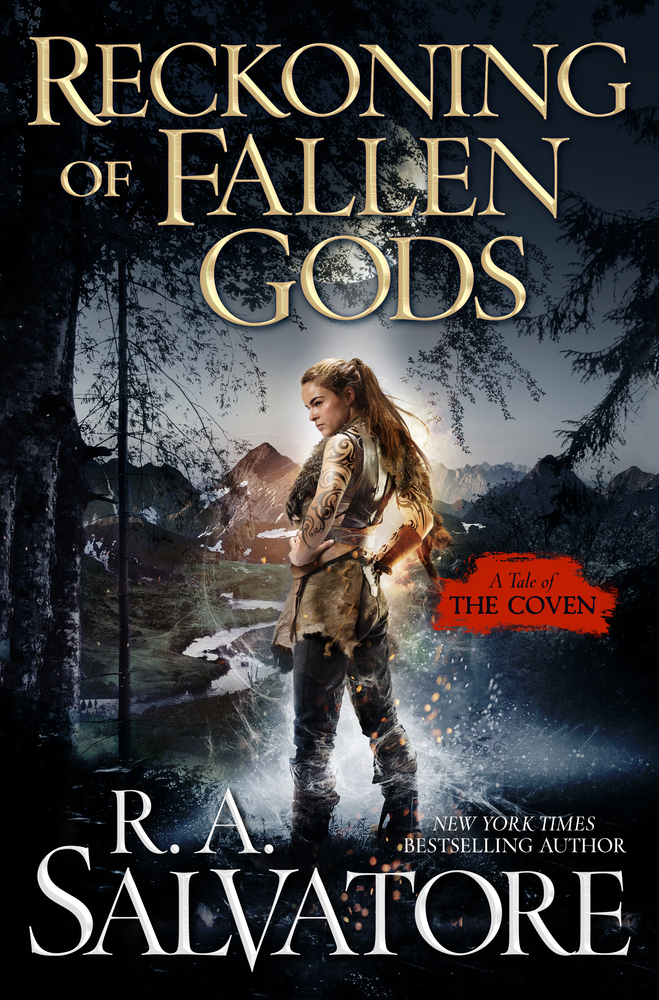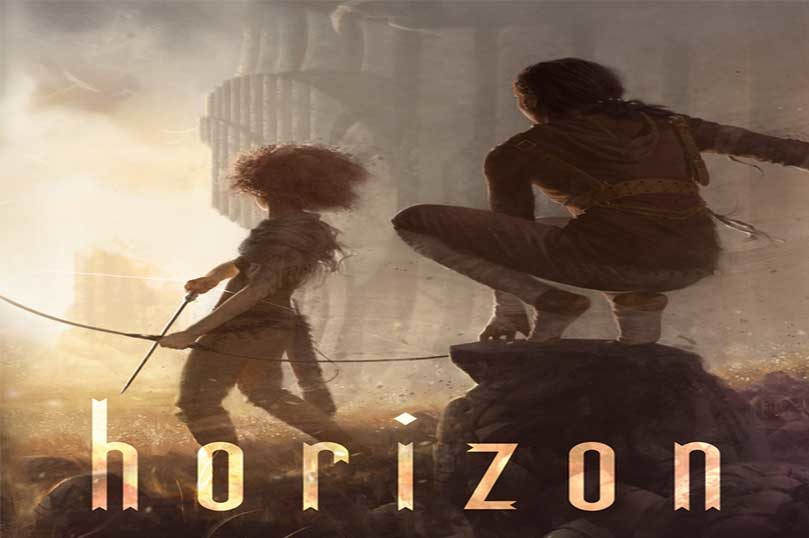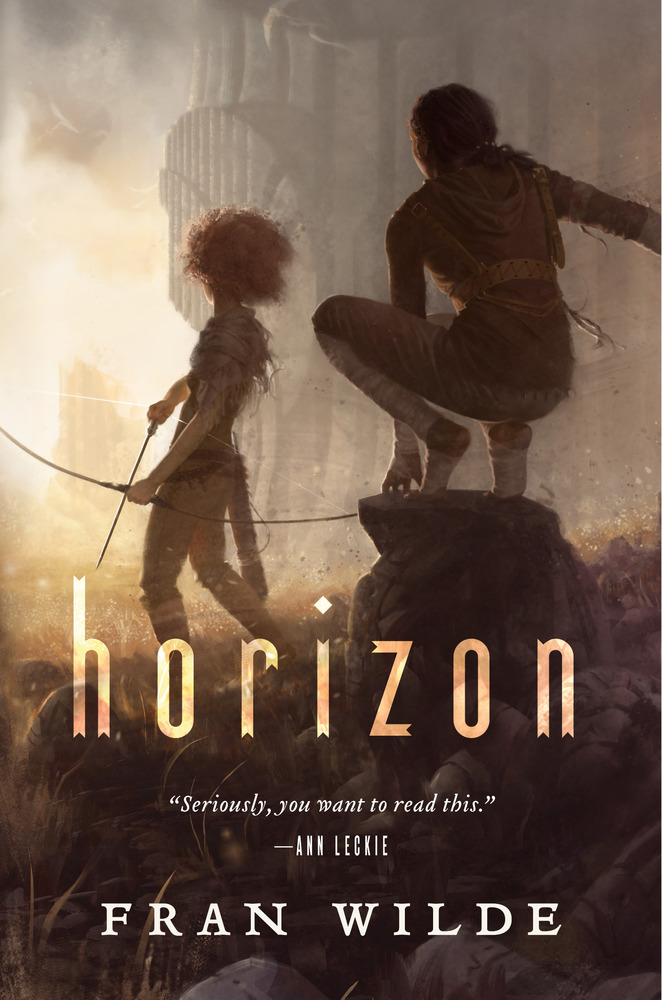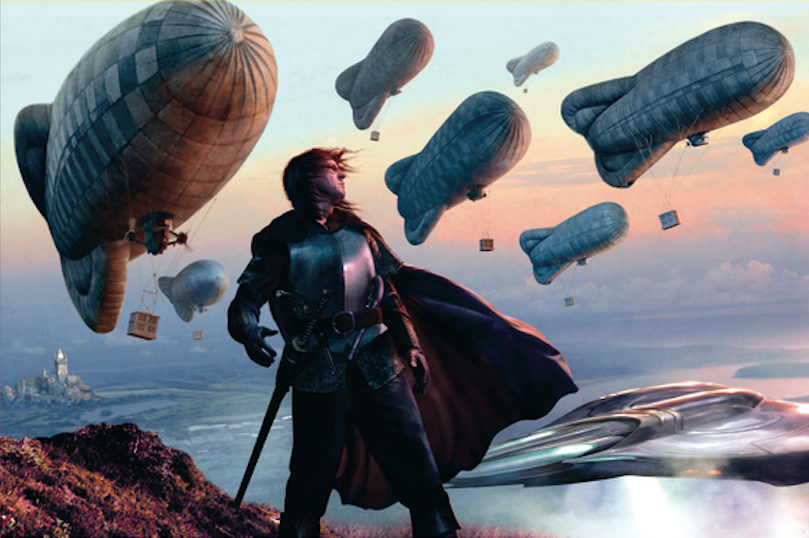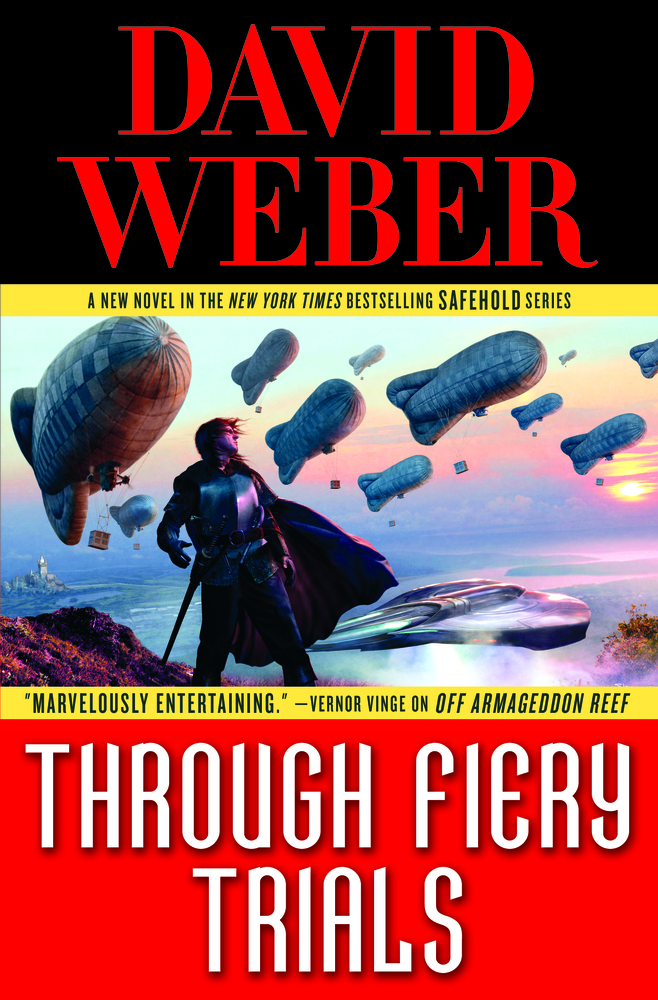 A hundred years in the future, a war wages between the Five Dragons—five families that control the Moon’s leading industrial companies. Each clan does everything in their power to claw their way to the top of the food chain—marriages of convenience, corporate espionage, kidnapping, and mass assassinations.
A hundred years in the future, a war wages between the Five Dragons—five families that control the Moon’s leading industrial companies. Each clan does everything in their power to claw their way to the top of the food chain—marriages of convenience, corporate espionage, kidnapping, and mass assassinations.
Through ingenious political manipulation and sheer force of will, Lucas Cortas rises from the ashes of corporate defeat and seizes control of the Moon. The only person who can stop him is a brilliant lunar lawyer, his sister, Ariel.
Witness the Dragons’ final battle for absolute sovereignty in Ian McDonald’s heart-stopping finale to the Luna trilogy.
Luna: Moon Rising goes on sale on March 19. You can read the first chapter on Tor.com.
TWO
There, again, shrill and high and piercing through the humming roar of the Orion Quadra morning: the call. Short, stabbing needles of sound, rounded by a trill.
Alexia pauses in her morning dress, fingers frozen on the button of her tight-waisted jacket. The slightest movement, the least rustle of fabric will obliterate the song. And it’s gone. Alexia moves on stockinged feet to her balcony. She holds herself icy still, listening for the piping note through the chords of a hundred different electric engines, the throb of water in the pipes, the hush of the artificial winds, the chorus of human voices that are the loudest ingredient in Meridian’s music. She focuses her concentration into a sharp arrow of listening. Even her heartbeat, the brush of her breath, is too loud. There: staccato pin-pricks of sound far off down the quadra. Something strange, something alive, something not human. Green gold, a fleck of red, blurs across her vision. She follows the movement. A bird.
‘What is that?’ Alexia has learned to accept the icons in her eye that represent the Four Elementals. The Iron Hand of the Eagle of the Moon will never know the choking fear of oxygen debt, of borrowing breaths from family, from friends; of weaving water from the exhalations of the moon’s million and a half citizens. But their lights never go out and Alexia can never forget that in this world everything is priced and accounted. Her familiar is still unfamiliar. Alexia has given it a name, as is the custom – Maninho – and skinned it as a cartoon kid in baggy T-shirt, shorts and too-big shoes to make it non-threatening, but she still hesitates to speak to it out loud. At home, AIs know their place.
At home.
A red-rumped parakeet, Maninho says silently in her implanted bud. Alexia gasps as the colours dart towards her and then perch on the railing of her neighbour’s balcony: a bird.
‘Oh look at you,’ Alexia Corta breathes. She squats down, twitters and hisses at the bird, finger held out; the universal invocation of small creatures and babies. ‘Aren’t you handsome?’ The parakeet cocks its head to regard her first with the right eye, then the left. Its plumage morphs from turquoise-green on the crown across emerald wings to a yellow belly. Its rump is a splash of hot brick-red.
Apart from fish and crustaceans in hotshop tanks and pet ferrets on leads, it is the only non-human living thing Alexia has since seen leaving Earth.
What is it doing here? Alexia tightens her jaw muscles and subvocalises into the implanted microphone, a trick that every moon-kid knows before they can walk and which she has still not mastered.
From its behaviour, I would surmise that it is trying to solicit food from you, Maninho says.
I didn’t mean, Alexia says . . . She may have skinned her familiar like a beach-bunny goofb ll but it has the personality of a priest instructing catechism. I mean, why are they here at all?
Feral colonies have been established in Queen of the South for twenty years, Maninho says. Meridian’s population is around five hundred birds. They have proved resistant to eradication. Biological infestation is a persistent problem in urban centres.
What do they eat?
Grains, fruit, nuts and seeds, Maninho says. Food surplus. They are entirely dependent on humans.
‘Don’t fly away passarinho,’ Alexia says. She backs away slowly into her living room. The old apartment on Ocean Tower had been cramped, but this was a jail cell. Where’s my penthouse view? she had complained. Her assistants frowned, baffl d. Th s was high status accommodation suitable for the personal assistant to the Eagle of the Moon. Her staff explained how deep radiation penetrated from the surface into the regolith. The higher your status, the lower your station. And where’s the kitchen? Perplexed, the civil servants had flipped up the sink, pulled out the waste disposal, slid the refrigerator out from the wall. Where do I store things? Where do I cook? Again, raised eyebrows. You want to cook? You eat out. You pick a hotshop, you get to know the regulars, you get to know your chef, you build a little community. Apartment kitchens are for making cocktails and brewing mint tea, if you absolutely categorically cannot get to a tea-house.
Nuts. She has some cashews in the fridge. Cashews, cashew juice, are the taste of home. They are the only things in the fridge. Birds like nuts, don’t they?
Message from Lucas, Maninho says. ‘Shit.’
It’s not even a voice call. A message, an instruction. Change of plan. Meet me at the Pavilion of the New Moon. Dress for a plenary session.
She throws a handful of nuts on to the balcony and, as she turns away, Alexia sees a flutter of green in her peripheral vision.
The man ducks into the elevator as close behind Alexia as her shadow. His stench catches in Alexia’s craw. Alexia’s sense of smell was the first to be assaulted by the moon, and the first to acclimatise. When she stepped out of the moonloop capsule into Meridian Hub, the reek had almost floored her. The gagging catch of sewage, the taint of rebreathed air and the bodies that had breathed it, the crackle of ozone and electricity, the greasy, sweet perfume of new-printed plastics. Bodies, sweats, bacteria and moulds. Cooking smells, decaying vegetation, stagnant water. Over all, before all, the spicy, burned-out-firework smell of moondust. Then one morning she woke in her tiny bedroom and was no longer greeted by the chasm of stench. It was part of her now. Fused to her skin, her throat, the linings of her tubes and lungs.
The entire elevator notices this man.
He is tall, gaunt, white, unshaven. He wears the default mooniform of hoodie and leggings but his clothes are dirty: unthinkable in a society that wears, discards, reprints daily. He is naked: no familiar hovers over his left shoulder. The man catches Alexia’s glance and locks looks.
Alexia Corta has never been the first to look away.
The passengers thin out as the elevator climbs. By the time it reaches the level of the LMA Council offices suspended symbolically between Earth and the deep-down lunar elite, only Alexia and stinking man remain.
The elevator slows, stops.
‘Give me some air,’ he gasps as the door opens. He steps into the doorway to prevent it closing.
‘Excuse me.’ Alexia pushes past and his hand snags her wrist. She pulls free with enough force to communicate that she could snap his arm with a thought, but pauses to face the affront. This is what poverty looks like, Alexia realises. She had grown up believing that everyone was rich on the moon. She had sat on the parapet of Ocean Tower and looked up at a tiny, distant ball of billionaires.
‘Please. A breath. Of. Air.’ She hears the strain in every word. Every syllable is a cost. This man is fighting for breath. His chest barely moves, the sinews of his neck are tight as cables, every muscle is focused on the act of respiration. He can’t breathe.
‘I’m sorry, I’m new, I don’t know how to do that,’ Alexia stammers, stepping away from the slowly asphyxiating man.
‘Fucking LMA,’ he whispers after her. He cannot afford a shout. ‘Not. Even. Worth. Air. We. Breathe.’
Alexia turns.
‘What do you mean?’ The door has closed.
‘What do you mean?’ Alexia shouts. The elevator ascends at express speed towards the high city where the poor people live.
Alexia, Maninho says, you are two minutes and twenty-three seconds late. Lucas is waiting.
With folded hands, Lady Sun awaits the Lunar Mandate Authority. The honourable delegates will be irked: made to travel from Meridian to Queen of the South, then to the Palace of Eternal Light, finally the humiliating walk across the polished stone floor of the Great Hall of Taiyang to the small door where Lady Sun waits with her entourage. Let them be irked. The Dowager of Shackleton is not summoned like an infant.
They move like frightened hens, these Earthmen, in picky, parsimonious steps, huddled together as if the floor might swallow them. Earthmen. Such loathsome suits. Narrow ties, mean shoes. The uniform of apparatchiks and corporate ideologues. Their familiars are identical steel-grey crescents, as if they were mere digital assistants and not external AI souls. Her entourage – tall, handsome, well tailored – looks down on the terrestrials.
‘Sun Cixi.’ She waits.
She can wait until the sun turns cold. ‘Lady Sun.’
‘Delegate Wang.’
‘We are concerned for the well-being of Delegate James F Cockburn. He was assigned as LMA liaison with Taiyang, with particular portfolio for the equatorial solar array,’ says Delegate Wang, a cool and calculating woman from Beijing. Party apparatchik. ‘We want to know if Delegate Cockburn has met with an accident.’ Lady Sun’s familiar identifies the speaker as Anselmo Reyes, from the Davenant venture capital group. The LMA has sent its highest-ranking officers.
‘I regret that Delegate Cockburn met with a fatal accident during an inspection of the North Grimaldi sector of the Sun-ring,’ Lady Sun says. ‘Surface suits, even shell-suits, require skill and experience.’
‘We were not immediately informed?’ Delegate Wang says.
‘The network is still recovering from the invasion,’ says Demeter Sun from the Taiyang entourage, as rehearsed.
‘The rationalisation, you mean,’ Delegate Wang corrects. Demeter Sun dips his head.
‘Taiyang will conduct a full accident investigation,’ Sun Guoxi says. ‘You will be provided with the report, and any compensation claims will be satisfied.’
‘Please accept this from the Board of Taiyang,’ Lady Sun says. She lifts a finger and Sun Xiulan steps forward with the box. Small, intricate, lunar titanium, laser-cut. Exquisite. Wang Yongqing lifts out a calligraphic scroll.
‘Carbon, fifty-eight thousand five hundred and twenty-three point two five grams, sixteen thousand six hundred and sixty-four point three seven grams oxygen,’ Delegate Wang says. ‘Explain, please.’
‘The chemical constituents of James F Cockburn, by mass,’ says Lady Sun. ‘Surprisingly high counts in lead, mercury, cadmium and gold nanoparticles. Isn’t the calligraphy exquisite? Sun Xuilan has an enviable hand.’
A tall young man dips his head.
‘The elements have already been added to the general organics pool,’ Lady Sun says. ‘The zabbaleen are most accurate in their end-of-life audits. I find such precision reassuring.’
Sun Xiulan has an enviable hand with the calligrapher’s brush but the finest touch is Jiang Ying Yue’s with the knife. She is Taiyang’s Corporate Confl t Resolution Offi , a perfumed title for what more direct clans, like the Mackenzies, would have called First Blade. The Three August Ones had foreseen the coming of an agent of the People’s Republic; simple checks had identified James F Cockburn as that agent to seventy-five per cent certainty. Odds short enough for the Board, in the shadows and glare of the Palace of the Eternal Light, to order a termination. Jiang Ying Yue was tasked, armed and dispatched. She personally escorted Delegate Cockburn on the private railcar. While the car was still in the Shackleton crater wall tunnel, Jiang Ying Yue slipped the bone blade from the holster inside her suit and drove it up through the soft fl sh of James F Cockburn’s jaw into his brain. Zabbaleen were waiting at the siding at the BALTRAN terminal. They removed the body, the knife and every stain and trace of DNA. Stains are blood, blood is carbon and carbon belongs to the moon.
‘This is . . .’ Monique Bertin stammers, the third executive officer of the LMA, representing the interests of the European Union.
‘Our way, Madame Bertin,’ Lady Sun says. The crook of a finger is the sign to her entourage that the meeting is over. ‘Please enjoy the hospitality of the Palace of Eternal Light.’ Lady Sun’s young women and men close in around her as she takes her leave. Excellent boys and girls.
‘Did you notice?’ Lady Sun says as they step into the tram capsule that will take her to private suites.
‘All defer to Madam Wang,’ her Corporate Conflict Resolution Officer says.
‘The People’s Republic has not forgotten,’ Lady Sun says. ‘They have waited sixty years, but they have grown greedy and lax. They have made an error. They have shown us how deeply they control the LMA. And we can use that against them.’
The capsule slips across tunnels and slows into Lady Sun’s private station.
Madam, Darius Mackenzie has arrived, Lady Sun’s familiar announces.
‘Darius Sun,’ Lady Sun corrects. ‘Ying Yue, please call my granddaughter Amanda. I wish to see her in my apartment.’
The lift of a hand dismisses Jiang Ying Yue at the capsule door. Lady Sun pauses to observe her great-nephew. Five days ago she left him under the tutelage of the School of Seven Bells. Already he looks leaner, sharper, tighter. Disciplined. And he has stopped vaping.
We make weapons here, Mariano Gabriel Demaria had said.
Lady Sun has sent many of her family to learn the way of the knife but the weapon she forges here is something subtler and greater. A weapon borne in plain sight, like a sword on a wall, that after years still carries a lethal edge. A weapon that might only be drawn after she is dead.
‘Darius.’
‘Taihou.’ The honorific is not precisely correct but Mariano Gabriel Demaria has put manners on him, after the unseemly informalities of Kingscourt. When did the Mackenzies become soft and decadent? In the great days the Suns and Mackenzies forged this world. Hammered steel, the Mackenzies; and she had been as hard, diamond to their metal. Lady Luna was harsh then; every breath, every tear wrestled from her. So few now: Robert Mackenzie dead; Yevgeny Vorontsov doting, prodded along by his grandchildren like a pig to market. Even Adriana Corta, last of the Dragons, first to die. She had the iron in the bone. It is the children who disappoint. Workboots to workboots in three generations. The fi st generation makes it, the second generation spends it, the third generation loses it. Lucas Corta, there is a son to his mother. Travelling to Earth, that was a thing the old Dragons would have admired. It’s impossible, so do it anyway.
She had intended that the Cortas and Mackenzies destroy each other. There is work yet to be done.
‘I trust Mariano is taxing you?’ Lady Sun asks. She moves to her windows, slits of blazing light cut deep into the rim-rock of Shackleton Crater. Toughened glass, six centimetres thick, yet the unrelenting sunlight of the South Pole chips away at atomic bonds, day by day, lune by lune. One day, one lune, they will fail. Lady Sun fi ds a comfort in imagining that. It is bracing, strengthening to know the end. Blades of brilliant, dusty light slash the room. Lady Sun’s apartment is spacious and simply furnished; her luxury is the fabrics and weaves clothing her walls. The shafts of sunlight, never varying in height at this extreme latitude, have bleached long lines across her brocades and tapestries. It is a matter of indifference to Lady Sun. She enjoys her textiles for their tactile properties; creative weaves can change in a stroke from fur-soft to the little tearings of cat tongues.
‘If that means, is it intense, then intense,’ Darius Sun-Mackenzie says. ‘He’s teaching me to sense. Before fi hting there is moving, before moving there is sensing.’
‘The maze,’ Lady Sun says. The whole moon knows the legend of the dark maze, where true fi hters are trained, strung with seven bells hanging in blackness. When you can walk the maze without sounding a single chime you have learned all the School of Seven Bells can teach you. ‘Show me what you’ve learned.’
Lady Sun lifts a walking stick from a glass pot. Unthinking guests and children give her sticks as gifts. She brings it down with all her force on Darius’s head. He isn’t there. He’s a step away, balanced and ready. Lady Sun lays into Darius with the cane like a widow beating off housebreakers. Darius steps, swerves, bends around the blows; the least possible movement so that the strike misses him by millimetres. Grace and elegance, Lady Sun thinks as she advances on Darius, her cane a flurry of slashes and stabs. He does not trust eyesight alone; he hears the movement of the cane, my breathing, my footsteps; he feels the displacement of the air.
‘Delightful,’ Lady Sun says. ‘Now imagine you intend to kill me.’
She lofts the stick. Darius catches it without looking. He feels it, his hand is there, open. He comes at Lady Sun; the edge of the cane glides past her throat, the soft spot behind her ear, her armpit. Close, controlled, the least distance between intent and impact.
The cane brushes her forearm, her groin, her neck. The finale, the three gracious cuts.
The first cut takes away the blade. The second cut takes away the fight. The third cut takes away the life.
Lady Sun beckons and Darius surrenders the cane. ‘You’ve been working ahead of your tuition.’
‘At Crucible I learned knife-fighting basics with Denny Mackenzie.’ ‘A fine blade, Denny Mackenzie. Mean and honourable. I wonder
how he’s enduring exile.’
Familiars announce the arrival of Amanda Sun in the lobby.
Darius excuses himself.
‘Stay,’ Lady Sun says. ‘There are other ways to fight.’
Amanda Sun betrays anger in the set of her shoulders, the lay of her belly, the tightness in her hands. I read you like a children’s story, Lady Sun thinks. Small wonder Lucas Corta bested you.
‘Your son is in Twé,’ Lady Sun says at length.
‘He is still under the protection of the Asamoahs.’
‘And yet you are here,’ Lady Sun says. On the edge of her vision
still wide, still sharp – she sees Darius shift uncomfortably. ‘Lucas Corta is on his way to Twé as we speak. He intends to take his son back to Meridian. We need leverage with the Eagle of the Moon. The whole Nearside is scrambling to get its hands on a Corta. A valuable Corta.’
‘I’ll leave immediately.’
‘Too late for that. Tamsin has prepared a claim in your name for parental custody of Lucasinho Corta.’
Darius leans forward, draws in muscles and sinews and breath; his new-born fighting instincts woken.
Copyright © 2019
Order Your Copy

